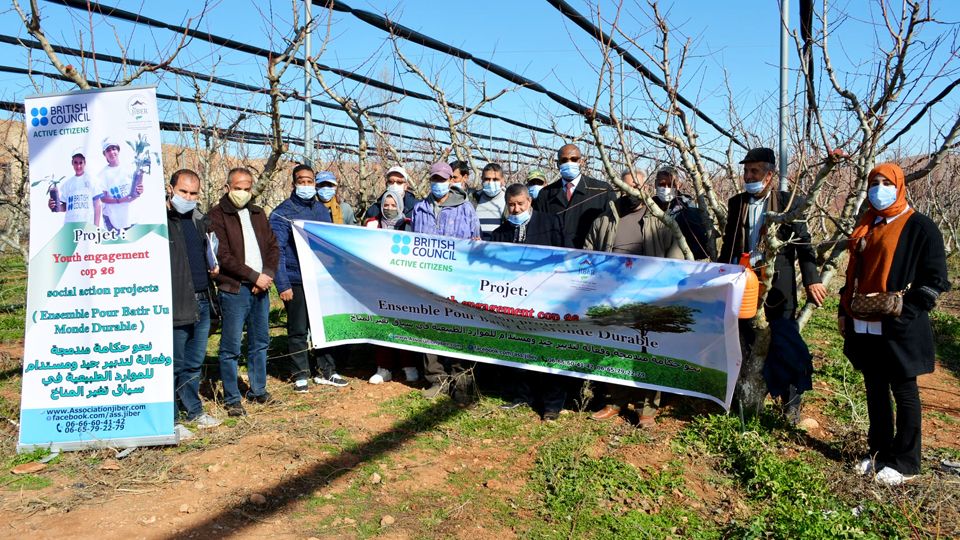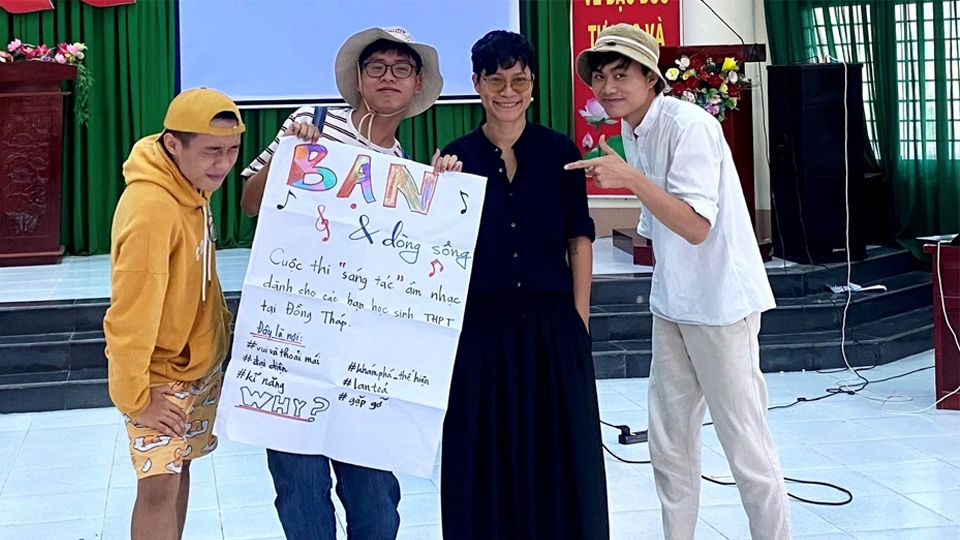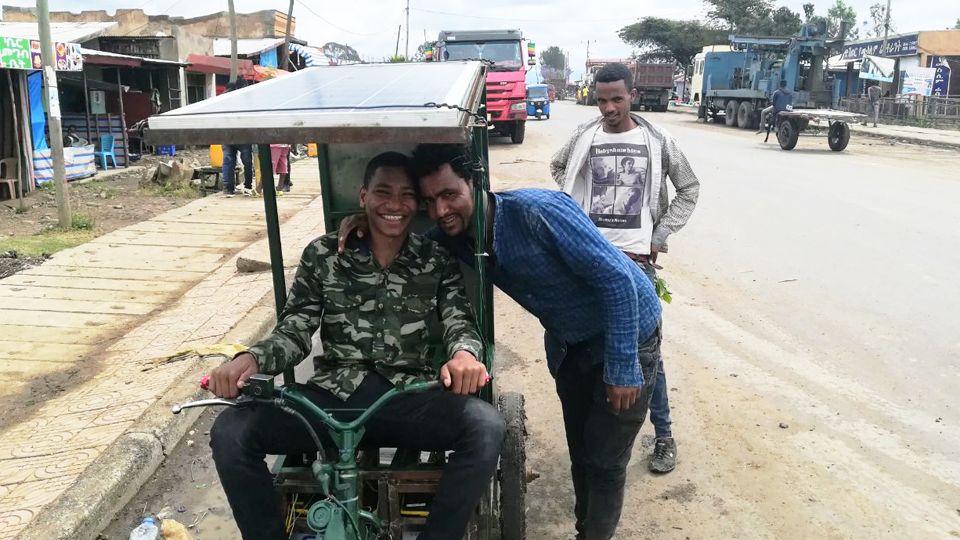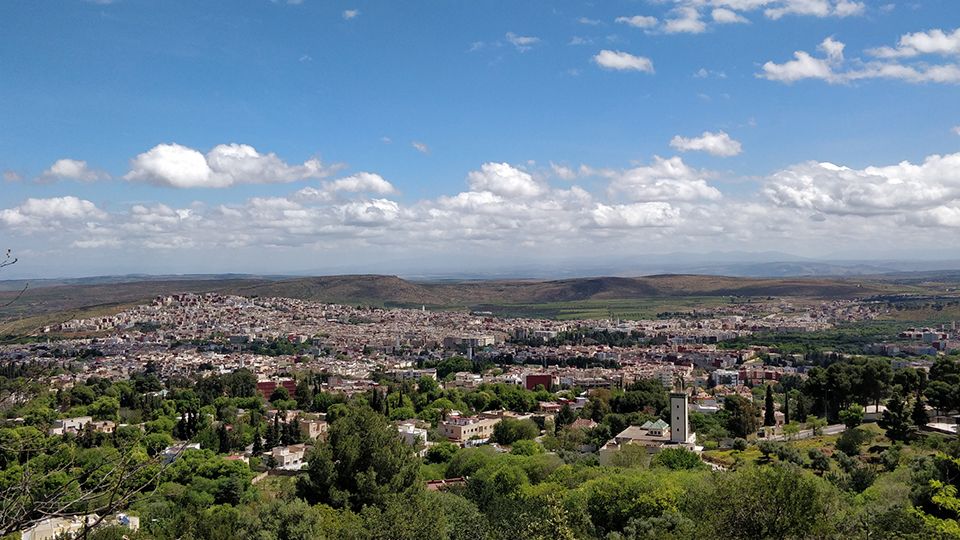However, in line with global warming trends, Morocco faces the prospect of rising temperatures, a decline in rainfall and an increased risk of drought and, without access to refrigeration, food is more likely to rot quickly and go to waste. Expensive cooling units are not an option for many farmers like those in Sefrou. Although some of the food is rescued for animal fodder, most of it is thrown away. And completing the vicious cycle is the fact that food waste is estimated to contribute to 8% to 10% of global greenhouse gas emissions.
Established in 2001 to help Séfrou’s rural villages access education, health and clean water, JIBER has broadened its reach into a co-operative non-profit which, among other things, buys unsold waste produce from farmers and merchants, and, using specialised equipment, converts them either into other products, including cosmetic oils and face masks, or simply dried fruit for desserts or condiments. These are then sold at markets in Fez and Séfrou.

Participants of JIBER
An important part of JIBER’s mission, says general director Donat Bukasa, is the socio-economic integration and skills-building of young people in the region. “We have now taken on 12 young employees, two people full-time and the rest part-time,” he says. “They meet two to three times a week in the building where the co-operative is located.”
JIBER is supported by professional development opportunities from institutions such as the British Council to strengthen the capacity of its members and the impact of its projects. These opportunities also equip them with the knowledge and skills to apply for grants with which they acquired certain machines such as distillation devices, a pressing machine, a dryer and a packaging machine that help to extend the lifespan of the fruit produce but also very valuable skills to professionally and sustainably manage their association.
Bukasa hopes with more funding they will be able to afford items such as centrifuges, a biomass boiler, settling containers and grain oil press machines (to extract olive oil), a drying greenhouse and many other tools to expand their products. “We are committed to issues related to climate change,” says Bukasa. “It is a priesthood for us and we owe it to the generation of tomorrow because we ourselves are mostly young people.”
In the wake of the COP26 talks, against a backdrop of global climate change goals and targets, some of the most persuasive responses are those from young people reacting to local problems in their communities, taking proactive approaches to combat climate change at a local level and empowering each other. In the Global Youth Letter, a report published by the British Council which surveyed some 8, 000 young people in 23 countries, respondents agreed that they consider climate change to be one of the largest and most unprecedented threats to the world.
A youth-led project called Rivers of Life in Vietnam is another example of inventive locals tackling problems at the grassroots. This initiative, which targeted youth leaders and high school students, focused on the Mekong Delta basin in Vietnam, a massive economic area for rice, seafood and fruit exports, which many rely on for their livelihoods. The area is likely to face major climate-related challenges such as flooding, dangerous currents, erosion, landslides and pollution. According to Donna McGowan, country director at the British Council in Vietnam, Rivers of Life culminated after a seven-month production of climate-related projects created by 23 youth leaders and about 100 high school students in Vietnam’s Dong Thap province, who were mentored by environmental scientists, artists and communication experts.
The idea “was to change behaviours and attitudes of young people in their environment,” says McGowan. Their 10 projects resulted in digitally innovative products such as films and comic books about waste in the Cai Rang Floating Market, the salinity of the river in Ben Tre province, the death of the river, as well as digital paintings from artists about environmental issues.

Lullabies of the Rivers – a songwriting social action project for the youth in Vietnam
One of the projects, Lullabies of the Rivers, uses songs posted on social media to convey the message of climate change. The project has so far attracted the attention of more than 2,000 young people who “liked” their fan page and it won third prize (out of 400 entries) in a national Youth4Climate contest, organised by United Nations Development Programme (UNDP) and Ho Chi Minh City Communist Union of Vietnam.
Another example is the Hungry Water Project, a development of a project-based learning curriculum for high school students to better understand erosion and landslide in the Mekong River. The curriculum is being piloted in two high schools and is expected to be rolled out to all other high schools in Dong Thap province.
“Rivers of Life was an opportunity to share how young people in their country are taking climate actions, and raised how various stakeholders – policy leaders, business, organisations such as the British Council, young leaders in the Indochina – can join hands for climate actions for the Mekong Delta,” says McGowan.

Ezedin Kamil’s solar-powered three-wheeler
Meanwhile, in Ethiopia, Ezedin Kamil is a young entrepreneur who designed a solar-powered electric three-wheel vehicle as an alternative to the tens of thousands of three-wheelers in Ethiopia, all fuel-powered. “This invention can solve problems in my society,” says Kamil, a self-proclaimed “tech guy”. “In Ethiopia all three-wheelers generate carbon emissions, so my solar and electric three-wheeler can decrease our carbon footprint,” he says. It may also create job opportunities through local manufacturing of electric vehicles, especially now that the British Council has awarded Kamil a grant and a mentorship award via a Destination Zero Challenge to scale up his invention. Destination Zero has been so successful globally it is set to be held again this year. While the world’s strategic decisions are made at global conventions, conversations around climate change at the grassroots of communities can be crucial to solve local issues and engage the next generation. For the climate crisis to be tackled most effectively, clearly a simultaneous top-down, bottom-up approach, is key.
“Climate change is a human issue and needs a human response,” says Alison Barrett, senior officer responsible for the British Council’s Climate Connection programme. “Through our global network, we are creating opportunities for institutions, youth and communities to come together to find solutions to the climate crisis through arts, education and the English language. We believe that empowering young people and connecting them globally is the way forward.”





